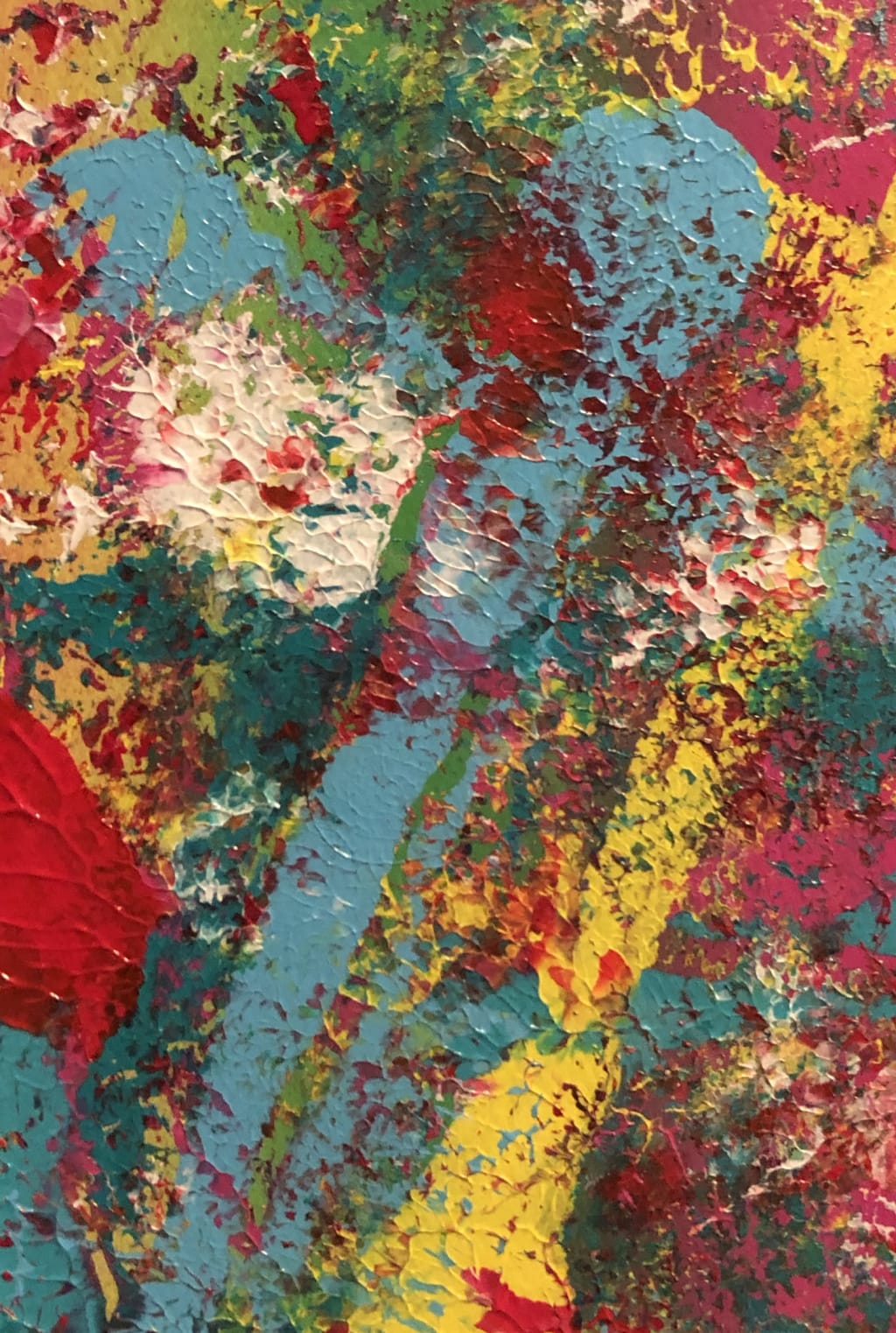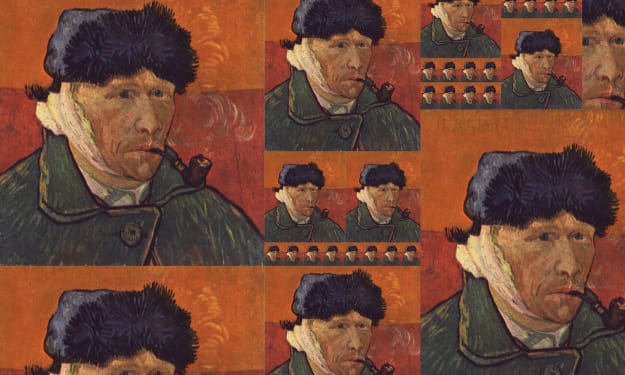What if We Looked at Life as if It Was an Abstract Painting
Learning to see life from a new perspective by learning how to look at abstract art

"What the hell is this supposed to be?"
"My four year old could've drawn this shit."
"I don't understand this painting, it's just a bunch of random splatters and splashes of paint on a canvas and blaby blah blah."
These observances are pretty common for people to use while they view abstract art, the black sheep of the art world. It's typically easily able to see and understand the aesthetic of grandeur lighting hitting a woman's face so well you can see the pores on her skin. Versus the seemingly accidental works of Jackson Pollock.
Whereas concerning abstract art, the viewer must strain their mind to find the meaning behind supposedly random shapes and colors, causing most people to become confused.
We know what it is to view art, but how does this affect how we see life?
Much like abstract art, life can be viewed with the same uncertainty. What if we saw life as an abstract work of art? I think we would see something profound, something that would allow us to see life as it truly is.
First, how the heck are we supposed to look at abstract art?
I'm no art historian. But through some research, I created the layman's journey through the evolution of art from realism, to the abstract. Please enjoy.
Once upon a time, in a galaxy far far away, probably on a planet called middle earth, painters of the renaissance (Asian Art included) used their highly skilled brushes to illustrate the world and people around them. Depicting the colors, and shapes as their eyes perceived them. The artists of the west and east continued this style up until the late 19th century.
It was a classic, "we have to be different from that generation," syndrome.
A drive for the artists wanting to move on from the old masters highly realistic styles and techniques.
Instead of painting royals in lavish clothing, they painted common folk in regular attire, or, on occasion, no attire at all.
They found the beauty in smaller, more quaint landscapes, without the epic realism of the old masters.
What made the impressionist's work so unique from its predecessors wasn't the subject matter on the canvas, but how it was drawn upon the canvas.
The group of artistic revolutionaries stripped the shapes, colors, and lighting to a much simpler form. Only showing basic textures, shapes, and colors. This allowed viewers to see nature, and themselves, in a far more exposed fashion.
However, the next generations took it a step further, vastly increasing this exposure. Stripping everything away 'til paintings became almost entirely naked, and created what we know as abstract art.
The definition of Abstract as an adjective is: Existing in thought or as an idea but not having a physical or concrete existence.
I personally disagree with this ironically close-minded definition relating to abstract art. Because this incredible form of artistic expression does have its base in something concrete. In that, it's made using three foundational components that art is built on: Shape, color, and texture.
If you took a brilliant painting by Leonardo DaVinci or a cubist masterpiece by Picasso, we would find these same three components.
Every painting has these fundamental components within its frame. Abstract art went so far as to show the world in the purest forms possible. Breaking the significant parts down until the only thing you see are the bare shapes, colors, and textures we see every day.
So, to answer the first question in this article of "what the hell is this?"
It's life, at its most basic form.
Our lives can be viewed in the same way if we apply the same principles.
Gary Vaynerchuk is not an artist, but a human being I much admire. He's a famous social media influencer who speaks a lot of truths, and one of them is the concept of macro/micro-events. Being an entrepreneur, Gary knows how critical failure is. This dude understands the difference between failing in the macro versus the micro. Gary also knows to be patient in the macro, and hustle in the micro.
In other words, macro is the long term and micro the short term. If a person focuses only on the micro and fails to see the situations in the macro, their vision is narrowed to where all they see is the situation itself. Regardless of whether the situation is good or bad, focusing on the micro is only asking for trouble.
You may have failed at something in the past and given up due to this failure. Or perhaps you're worried about something happening today? An interview, or a date. You've got the tummy rumblees, thinking about all the bad things that could happen.
We've all done that. Cause it's so easy to freak out in the "big" moment. It's a lot easier to stay hung up on your ex when you only remember the good times but brush off the bad to never see the whole picture.
What if we looked at everything, (past, present, future), like an abstract painting?
What if we stripped life down to the macro, and only saw the most essential components of life? What would we see?
What would you find? How would you understand your relationships? Your failures? Your successes? Everything that you've done in your life, everything you've seen, and everything you've felt.
So I challenge you to view your life from its most simple materials: actions, information, and feelings.
The bad relationship you're in now might not look so good, or the job you hate won't cut it anymore. Because once you put true meaning and purpose into your life, you'll soon see the bountiful value it holds.
For if you only see random splatters and shapes on painting, of course, you'll miss the beauty from within.
So, at the expense of you sounding like an ignorant art critic, find the meaning of your piece. One unusual question at a time.
About the Creator
Landon Girod
Hi I'm Landon Girod. I've had two books not make the New York Times bestseller list. And most of articles and short stories have yet to win any awards.






Comments
There are no comments for this story
Be the first to respond and start the conversation.